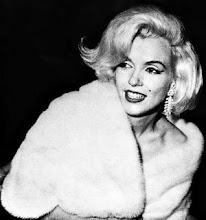The Godfather, Goodfellas, Donnie Brasco and so on and so on. The mob story has been done so often that a six and a half year-long series might seem to be unoriginal or even unnecessary. While the themes and basic ideas remain the same, The Sopranos is anything but a retelling of a story already told.
So what makes it so remarkably fresh? In all reality the success of the show is probably a number of things- smart writing, a strong cast of actors, a mixture of humor/drama/psychological thriller; but that’s the same formula as the previous mobster flicks I’ve listed. There is one simple factor which makes The Sopranos stand out on its own. That factor is the character Tony. With Gandolfini’s whole embodiment of the character, Tony’s many facets and complexities bring to life one of the most remarkable characters to ever be scene on a TV. The show really is at its best when it contrasts the two conflicting areas of Tony’s life; the mob world and the real world.
In The Sopranos the mundane continually intersects with the extraordinarily violent world of the mafia, making the viewer constantly unsure how to understand this wonderfully complicated anti-hero. In these two episodes the effects of Tony’s job on his children takes center stage.
At age 13, A.J. begins to figure out what his father really does when he gets special treatment during a playground fight. At the end of the episode the young boy’s full realization of the world he’s been brought up in is depicted in an elegant scene.
In a cemetery, A.J. watches as his father stands around with his ‘uncles’ at the former mob boss’s funeral while government agents manically take photos of every person at the sacred gathering. A feeling of pride, wonder and confusion come across the boy’s face. Distanced and standing across from Tony and the other mobsters, he sees what his father really is and then, in a split second, his father looks at him and winks. It’s a wonderful moment when we the viewers’ share the same perspective as A.J. We are outside of the dangerous world of the mafia looking in but with one swift glance and blink of an eye we are brought in, connected and fascinated simply through the charm and charisma of Gandolfini’s Tony. He may be dangerous, but you can’t help get swept away by him.
The next episode is Meadow’s turn to confront what she’s already known for a while, that her father is in the mafia. Tony and Meadow get some quality time when Tony is given the task of driving his daughter to college visits around the East Coast while Carmela lays home in bed sick. Tony as a father is strict and demanding; continually trying to make his children understand and follow his sometimes archaic values. But, at the same time, he is also a gentle, caring, normal dad. He is a man who can’t get over what a beautiful and intelligent young woman his daughter has become at a dinner and all the while planning how he will manage to kill an ex-mafia member.
The inner conflict Tony has to deal with really comes head to head in this brilliantly written episode. Tony drives his daughter from campus to campus but then spots a man he thinks ratted out many of his friends to the feds. Tony dines with his daughter and has a heart to heart with her about his career but cannot really tell her the truth; only a half truth. Tony whisks his daughter away to hang out with some college kids so he can investigate the ex-mafia member further but before he can make a move he has to lovingly assist his drunk and stumbling daughter back to their hotel room.
Tony’s two worlds have never come so close to colliding as is shown in this episode. It is obvious that Tony will eventually have to face some consequences for his actions, maybe not now (some noisy neighbors distract the gunman from shooting Tony as he helps Meadow into the room), but it is obvious that in the future there is going to be no hiding who he really is and no hiding his family from the danger of his job.
Subscribe to:
Post Comments (Atom)

No comments:
Post a Comment